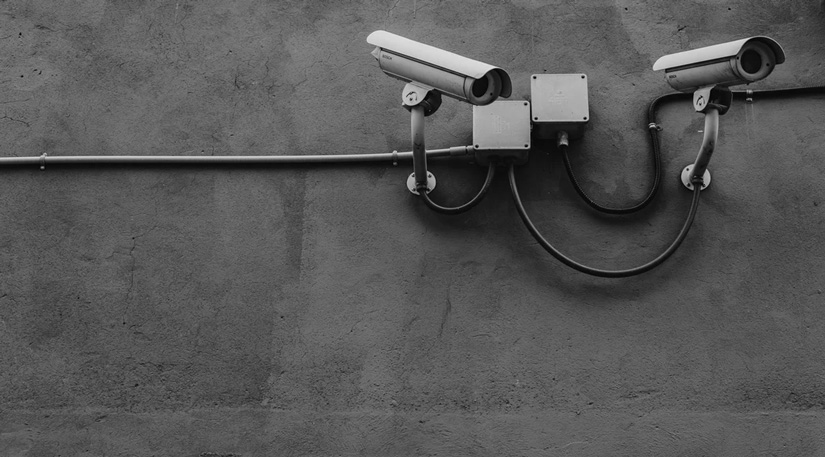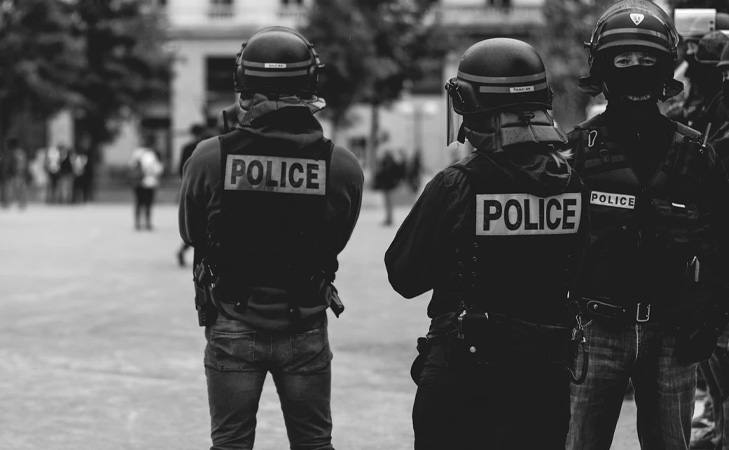
As drones become more affordable, you can expect to see them more often — zipping across the skyline in your neighborhood or maybe even over your house.
Given the many opportunities that come with drones for various different uses and industries, they’re exciting a lot of people. But what would you think if a drone appeared at the window when you were taking a bath?
What would be your reaction if you noticed a drone camera pointed your way while you did something else private within the confines of your own home?
Most likely you would not be pleased — and nobody would blame you for feeling that way.
Although these are extreme examples, drone pilots have to keep these facts in mind when flying a UAV.
Drone regulations stipulate that it is your responsibility to find out where the lines exist and ensure that you stay on the right side of the law.
So we created this little guide to help you do that. We don’t want you unintentionally getting on the wrong side of the law while doing something you love.
Are Drones an Invasion of Privacy?
Many people raise privacy concerns when the topic of drones is brought up because the majority of drones are fitted with high-definition cameras.
These cameras have opened up new possibilities in various industries like film production, search and rescue, as well as security. But they remain a cause for worry for people who worry about the cameras pointing at the wrong direction.
In July 2015, the state of Kentucky woke up to an unusual case involving a drone.
A man named William Meredith had seen a drone flying over his home. Most people would have shrugged and made a decision to bear the annoying sound while the drone remained in the vicinity.
But Meredith was not most people.
He suspected the drone was spying on his 16-year-old daughter who was sun bathing in the garden.
So he reached for his shotgun and shot the UAV out of the sky.
Although Meredith was arrested and charged with endangerment, he was later declared innocent of all charges. The judge declared that two human witnesses saw the drone below the tree line, and that was enough evidence to suggest the drone had invaded Meredith’s property.
This story is not an example of how you should react to a neighbor who disturbs your quiet enjoyment with their drone — an email or a phone call would probably be better, especially as the laws regarding shooting down drones are far from clear.
But it does highlight the sentiments that some people hold against drones.
And this sentiment extends to drones controlled by government entities as well, like the police.
Drone Privacy & Police: What Studies Say

Two separate studies carried out by a group of researchers at the College of Aviation at Embry-Riddle Aeronautical University (ERAU) looked into public perceptions of drones and privacy.
The first group’s study examined public privacy concerns about the use of drones by the police.
They made the case for the advantages of drones over helicopters for police work. Drones are cheap and accessible to many users. They can also easily blanket an entire city and are also much quieter than helicopters.
And yet, even after insisting that they understood the advantages, participants wanted to make sure that the technology would be well regulated.
Privacy concerns among participants were lower when they were told the police would use the drones for specific missions only rather than on a continuous basis.
Participants were only comfortable with the police use of drones if they were assured that they would only be used in response to a credible event. Anything other than that was roundly criticized. Flying drones all day over neighborhoods was not okay; it generated fear of the police.
The second study, which included 1047 participants, looked at privacy concerns based on who was flying the drones.
Participants in the study revealed that they were less concerned about recreational drone pilots and real estate companies using drones for business.
Most of their concern was reserved for government, military, and law enforcement using drones among the civilian population.
Bear in mind that the fear of one group over another did not exonerate any group.
The study revealed that no single group got a free pass, and — generally — people did get worried about privacy where drones were concerned.
Members of the public are not particularly in favor of any unmanned aerial devices flying over their homes and land.
People do not like to be watched. They don’t appreciate being watched in secret from the sky either, and any drone pilot should keep that in mind when operating their aircraft.
What Are the Privacy Laws When Flying A Drone?
Answering a question concerning drone privacy infringement would have been easy in the days before aircrafts and underground cables spread worldwide.
In the old days of British Common Law, courts would have referenced the old idea of “ad coelom et ad infernos”, which literally means “to the heavens and to hell”. What that meant for property owners had control over everything above their property and everything beneath it.
Accusing a drone user of trespassing or disturbing the peace would have been a clear cut case, one easily decided.
However, this idea has mostly been cast away from American courts today with the advent of aircrafts and underground electrical pipes.
Today, drone laws and regulations are yet to meet the pace of the rapidly advancing drone technology. The Federal Aviation Administration has passed some regulations to minimize the risks of drones harming people and objects on the ground and in the air. But a lot remains to be done in order to fully address the concerns of the public concerning drones and privacy.
The Federal Aviation Administration has passed some regulations to minimize the risks of drones harming property and people on the ground and in the air. But a lot remains to be done in order to fully address the concerns of the public concerning drones and privacy.
The rules of the FAA largely omit recreational drones, in any case.
Some states have already rolled out laws addressing the issue and passing their own laws on drones and privacy.
For example, the Florida, under Criminal Code Section 934.50 prohibits drone pilots from using drones for spying and disturbing another person’s legitimate privacy.
In Arkansas, under AR Code Section 5-60-103, drone users are prohibited from recording another person without consent. This law is one that we believe drone pilots should consider all around the world — you shouldn’t record someone without their permission, period.
If you ever want to fly over someone’s property, you should always ask for their permission first.
Privacy laws for drones vary throughout the world and it’s hard to summarize them all in a single blog post. That said, SurfShark put together a good guide that breaks down the rules by each country.
Does This Only Apply to Drones With Cameras?
You might be tempted to think you just have to take out your camera or disable in order to be free of trouble while flying your drone.
But that is not exactly true.
If you happen to be flying over privately owned land that does not belong to you, you could still be charged with some privacy related offences.
The first of these has to do with being a private nuisance.
In this case, the owner of the private space you are flying over could claim the noise from your drone caused by the engine or the blades constitutes a nuisance. They could accuse you of disrupting their quiet enjoyment of their property.
The second charge that can be brought against you has to do with trespassing.
Remember the principle of “to the heavens and to hell”? Well, it wasn’t completely banished to the cold corridors of history. You can still be charged with trespass for flying over someone else’s yard.
People no longer own all rights to the airspace above them but they do retain rights over the airspace that is sufficiently close enough to their roofs.
There is no single accepted answer to the question on how close your drone has to be to make you culpable. Drone laws vary from state to state and country to country.
You will have to do your own research to find out the laws that hold for the area you plan to fly in.
How to Avoid Privacy Issues and Complaints
Generally, you can avoid privacy issues and complaints by flying in a space you own, or a public area that has no crowds like out in nature somewhere.
But what if you have don’t have access to either of these things?
Here are a few rules you can live by to reduce the risk of infringing on another’s privacy while flying your drone:
Be Accountable
When you are in command of your drone — flying it — you are a pilot. Assume you are responsible for any and every piece of information collected by your drone.
Limit Collection
Make the extra effort to avoid capturing information you don’t need. If you happen to capture personal information with your drone camera, acquired without consent, you can make it anonymous. You could blur faces and license plates, for example.
Ask for Permission
Sometimes, because of what you intend to do, you just know there is no way around capturing personal information with your drone. For example, you could be recording the faces of thousands of people in a crowd at an event.
In that case, you should take reasonable action to obtain consent from all those who will be affected, and blur the faces of anyone that requests to be removed from your final video.
Store Information Securely
Save yourself from trouble by adequately protecting the personal information which you gather with your drone. Take reasonable steps to ensure that nobody else has access to the information.
Be Open and Responsive
If someone complains to you about your drone infringing on their privacy, you should respond respectfully and with courtesy.
Is It Different For Commercial Projects?

Drone privacy regulations are usually stricter for business users than they are for recreational flyers.
Before embarking on any business venture which would involve drones, you’ll want to get informed on regulations before moving forward.
Businesses want to weigh several factors that might be at stake like:
- What are the risks that come with using drones for business operations?
- Should there be an internal drone use policy?
- Does insurance cover drone use or will special insurance need to be purchased in order to incorporate drones?
- Should the use of drones for business be outsourced to an outside contractor?
Questions like this should inform your decision about incorporating drones as well, especially as the FAA sees itself as a body mainly concerned with safety and will therefore be concerned about these questions.
The Way Forward
Legislators are pushing for a more uniform drone laws on privacy to work better with general instructions from the FAA. More specific laws that work for the benefit of both drone pilots and pedestrians should be rolled out soon.
In the meantime, stay safe by learning where the lines are before taking to the skies.
In other related news, you may even need to work to keep your own drone private due to the risk of drone hacking.
